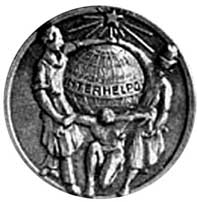Interhelpo

The Interhelpo was an industrial cooperative of workers and farmers (esperantists and idists) between 1923 and 1943, established for the special purpose of helping to build up socialism in Soviet Kyrgyzstan.
It was founded in 1923 in Žilina, Czechoslovakia (now Slovakia). Trains from railway stations Žilina and Brno transported 1078 persons (including mainly Czechs and Slovaks, but also Hungarians, Ruthenians and other nationalities, and including both direct members and their families) to Kyrgyzstan.
Its members made many products on the ‘green meadow’. The famous Slovak politician Alexander Dubček also participated in this cooperative as a boy.
The cooperative constructed among other objects:
- in 1925: an electric power station
- in 1927: a textile factory
- in 1928: a melting-house
- a furniture factory
- railroads, hospitals, main government building in the capital of Kyrgyzstan
In 1925, the Interhelpo was declared the best cooperative in the Soviet Union. In 1934 it made 20 percent of Kyrgyzstan's industrial products.
Interhelpo was liquidated in 1943. Its members were persecuted by Stalinism and many executed as enemies of the Soviet Union.
See also
External links
- Site dedicated to Interhelpo (Russian)